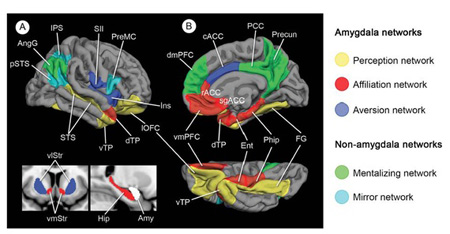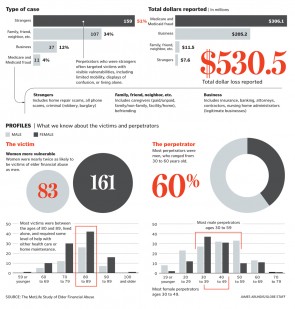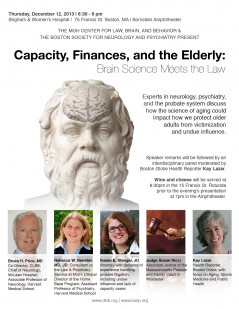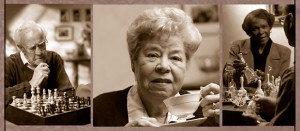By Erika Hayasaki | The Atlantic | January 9, 2014
While Alzheimer’s usually affects older people, and is detected as a person begins to lose memory, frontotemporal dementia causes people to lose their personalities first, and usually hits in the prime of their lives — the 30s, 40s, and 50s.
Over the last decade, new research in patients with frontotemporal dementia and other illnesses, has helped neuroscientists understand more about the roles different parts of the brain play in where our personalities come from.
 A study released in October by Dr. Brad Dickerson, [Dr. Lisa Feldman Barrett,] and colleagues at Harvard Medical School in the Journal of Neurology, Neurosurgery & Psychiatry pinpointed regions in the brain that showed atrophy from frontotemporal dementia and found that those with the most damage to the “perception network” (amygdala, orbitofrontal cortex, superior temporal, and fusiform cortex) also showed the most prominent difficulty responding to social cues, facial expressions, and eye gaze, and had the most trouble interpreting gestures and body language—the kind of cues that sarcasm relies on.
A study released in October by Dr. Brad Dickerson, [Dr. Lisa Feldman Barrett,] and colleagues at Harvard Medical School in the Journal of Neurology, Neurosurgery & Psychiatry pinpointed regions in the brain that showed atrophy from frontotemporal dementia and found that those with the most damage to the “perception network” (amygdala, orbitofrontal cortex, superior temporal, and fusiform cortex) also showed the most prominent difficulty responding to social cues, facial expressions, and eye gaze, and had the most trouble interpreting gestures and body language—the kind of cues that sarcasm relies on.
Read the full article at The Atlantic Monthly.





 Alternatively, cognitive limitations may be more global in nature. Some elder adults had the foresight to record specific beliefs prior to any cognitive disease. Health care proxies, living wills, or financial power of attorney document an individual’s choices at an earlier time point.
Alternatively, cognitive limitations may be more global in nature. Some elder adults had the foresight to record specific beliefs prior to any cognitive disease. Health care proxies, living wills, or financial power of attorney document an individual’s choices at an earlier time point.
